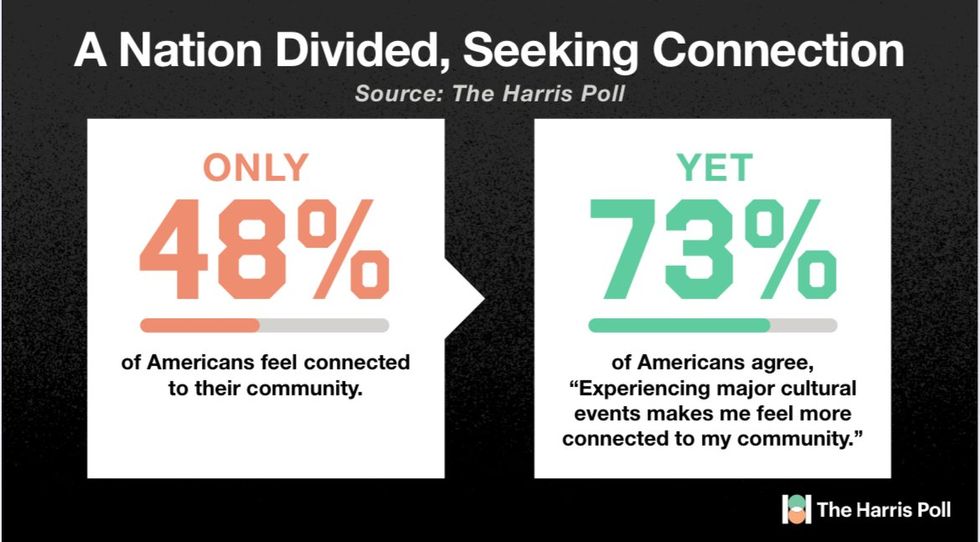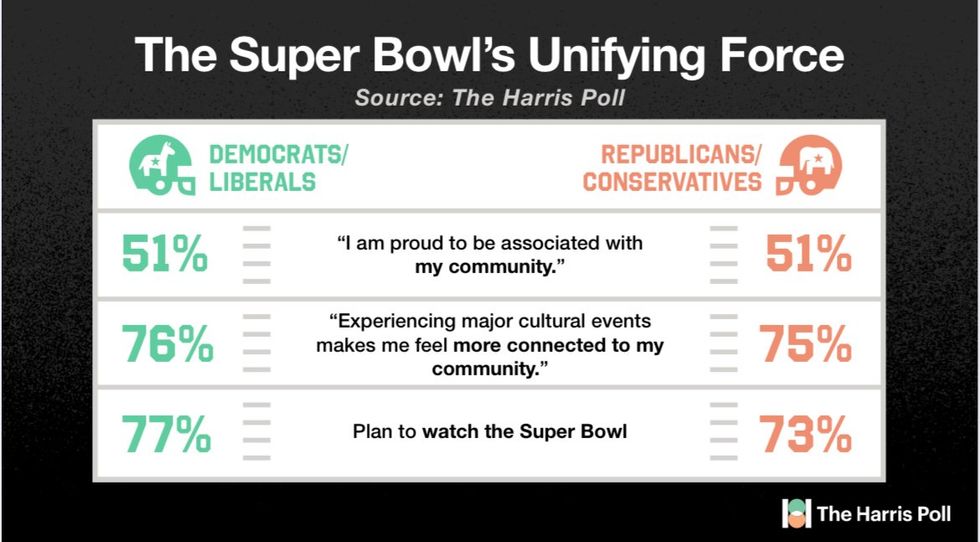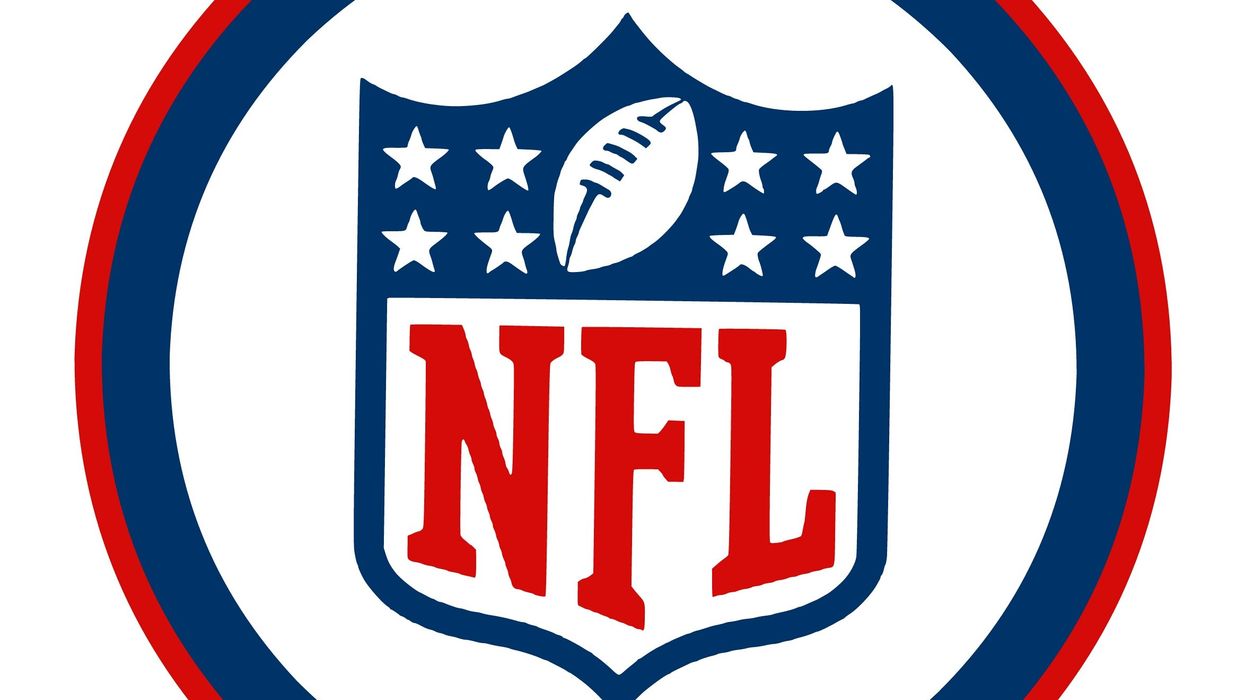Every year, on Super Bowl Sunday, Americans come together.
For one day, under the banner of a football game, the divisions that so often define our daily lives fade into the background. Our polling shows that three-quarters of liberals and conservatives alike plan to watch this year’s pro football championship game.
More importantly, a striking 76% of Democrats and 75% of Republicans say these events deepen community ties that, on other days, feel fractured if not entirely broken. And this does not just happen in the confines of our homes or families – 73% of Liberals and 71% of Conservatives agree that such occasions help them feel connected to people nationwide.
We don’t just watch a football game; we share a collective experience. We gather with friends and family, cheer for our favorite teams, laugh at the commercials, and marvel at the halftime show. For a few hours, the divisions that so often define our daily lives fade into the background.
So, what if we carried that spirit beyond Sunday night?
In the aftermath of November’s razor-thin election results, we seem to be constantly told that we’re divided. The headlines declare it, politicians exploit it, and social media algorithms thrive on it. And after hearing it long enough, we start to believe it. We pull away from neighbors, disengage from our communities, and lose the sense of connection that binds us together.
Many Americans feel disconnected from their neighbors and even from members of their own families, our polling shows. Less than half of us—48%—are proud to be associated with our local communities, and just 61% take pride in our country. One in two adults is estranged from a close relative, often over political differences.

And yet—there’s a big but —we still love to play. Sports remain one of the few places where Americans come together across all differences. From preschool soccer games to senior go leagues, from neighborhood pickleball matches to pickup basketball, from ultra-marathoners to Special Olympics Unified Teams—play remains an essential part of who we are.
This truth is hiding in plain sight every Super Bowl Sunday. We know that it isn’t all about rooting for the Chiefs or the Eagles. In fact, only 31% of people watch because they care about the outcome. It’s more than just a game—it’s a national ritual that reminds us what we share.
Of the 100 most-watched television broadcasts in the U.S. last year, 72 were NFL games, with the Super Bowl easily topping that list. The 2024 Super Bowl was the most-watched telecast in U.S. history—nearly 124 million people tuned in—it nearly doubled the viewing audience of the next-biggest broadcast of the year, the September presidential debate, which drew an audience of 67 million.
What a striking contrast between what brings us together and what pulls us apart. It’s more than just a game—it’s a national ritual that reminds us what we share. We may root for different teams, but we all show up for the drama of competition, the artistry of performers, and the joy of being together. We celebrate community. We celebrate creativity. We celebrate the best of the American spirit.
The challenge is finding ways to sustain this unity beyond a single night. Organizations like the Special Olympics Unified Teams seek athletes and volunteers of all ability levels. Do you like flag football? There’s a rec league for you. Prefer bowling? A team is waiting to welcome you. From soccer to skating, softball to basketball, the only requirement is a willingness to play.
Not into sports? There are countless other ways to build community. Love to serve? Lions Clubs welcome new members. Want to mentor young people? Police Athletic Leagues are always forming. Looking to get in shape? Walking clubs offer a simple, free way to connect.

Super Bowl Sunday is a reminder that America’s divisions aren’t the whole story. Of course, we have differences—sometimes painful ones. But in a democracy, we bring our passions to the public square to build the future we believe in. And here’s the key: hatred doesn’t advance any cause except hatred itself. No one wants to live in a country defined by contempt.
Super Bowl Sunday offers us a lesson on how to beat it—with the simplest of tools: play together. Compete with respect. Treat one another with dignity. Believe in something bigger than ourselves. That’s the American spirit. And it’s not just for game day—it’s for every day.
Tim Shriver is chairman of the board of Special Olympics, a global sports movement to end discrimination against people with intellectual disabilities.
Will Johnson is chief executive of The Harris Poll, one of the world’s leading public-opinion r esearch firm.


















Trump & Hegseth gave Mark Kelly a huge 2028 gift